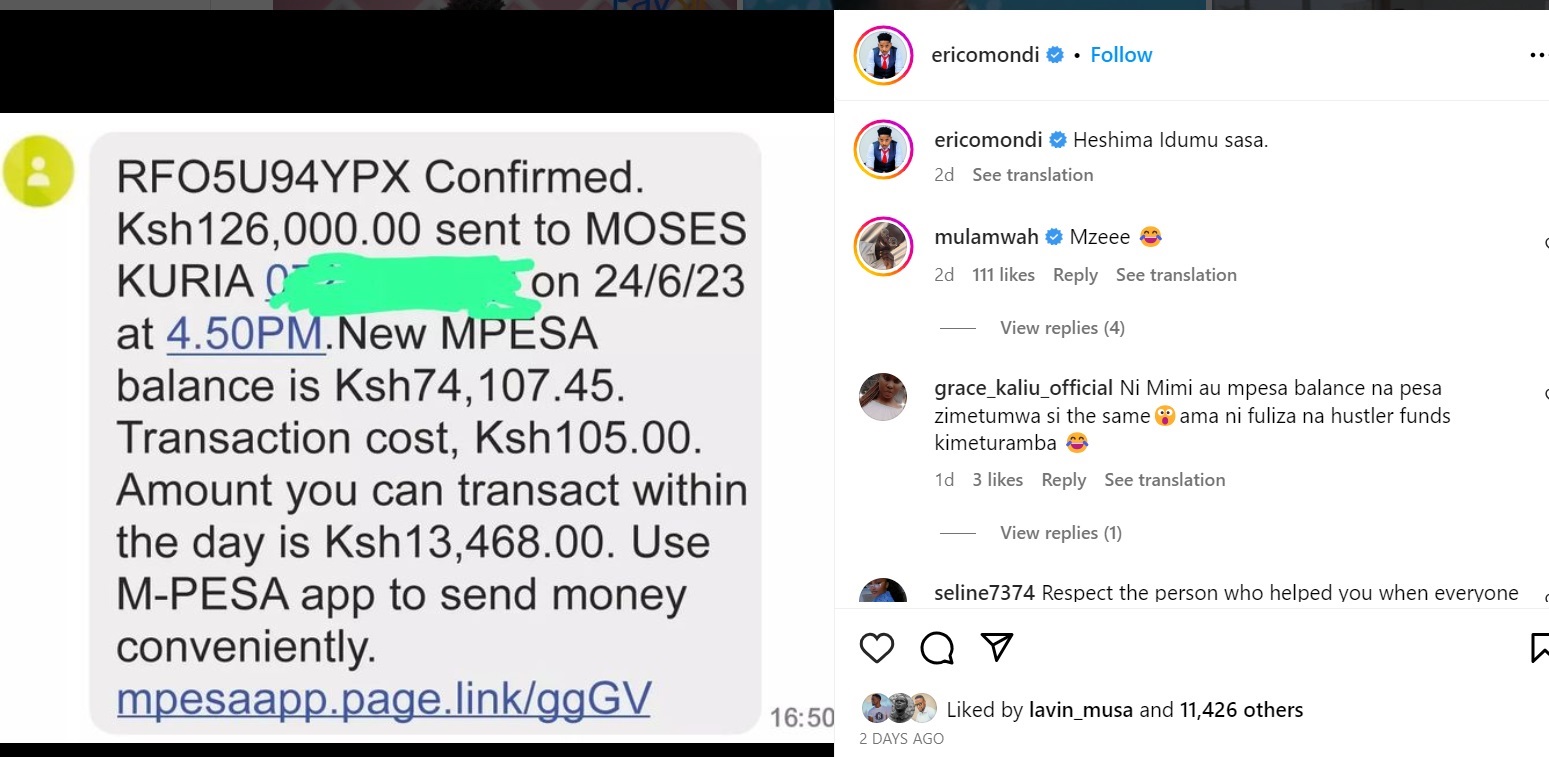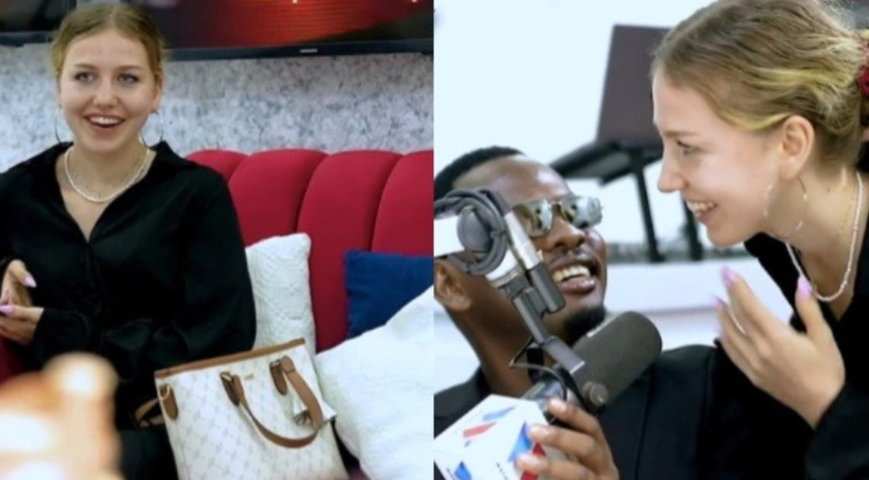Kenya found itself embroiled in controversy following comedian and activist Eric Omondi's explosive allegations against politician Moses Kuria. Omondi claimed to have made startling revelations, asserting that he had previously received a significant sum of 126,000 Kenyan shillings from Kuria. This money was allegedly provided to support Omondi's plans for overseas travel.
Moses Kuria, a prominent figure known for his role as the Cabinet Secretary for Investments, Trade, and Industry, now faces scrutiny due to these allegations. Omondi's claims have ignited a heated debate, capturing public attention and raising questions about the intentions behind such financial transactions.

The controversy surrounding this incident has sparked widespread interest and speculation, as both Omondi and Kuria are well-known figures in Kenya. The public eagerly awaits further developments and official responses from both parties involved.
Did you read this?
It is essential to note that these claims are currently allegations, and further investigation and clarification are required to establish the truth behind the accusations. As the situation unfolds, the Kenyan public remains curious about the underlying motives and implications of this financial transaction, eager for clarity and transparency.

Recent developments have cast doubt on the validity of these claims. Omondi, in an attempt to set the record straight, decided to return the money to Kuria. Surprisingly, a closer examination of the MPesa transaction message reveals a potential discrepancy. Observers have pointed out that the message appears to have been tampered with, as an essential hyphen between the 'm' and 'p' is conspicuously absent. This oversight raises suspicions regarding the authenticity of Omondi's act of repayment.
The public's response to this revelation has been mixed, with many individuals failing to notice the missing hyphen in the MPesa message. Some have questioned the veracity of Omondi's claims, suggesting that the entire incident could be an elaborate fabrication. Others, however, maintain that Omondi's intention to return the money should be appreciated, regardless of the potential oversight in the message.
Both Omondi and Kuria have yet to provide further clarification on the matter. As the story continues to unfold, the public eagerly awaits their responses and any evidence they may present to support their respective positions.
This latest controversy adds another layer of intrigue to Kenya's political and entertainment spheres, with the actions and statements of public figures frequently under scrutiny. The situation serves as a reminder of the importance of transparency and accountability in all dealings, particularly those involving public figures. As discussions surrounding this incident continue, Kenyans are left to ponder the truth behind the allegations and the implications they may hold for the individuals involved.
Controversy has erupted in Kenya as veteran comedian turned activist, Eric Omondi, made explosive allegations against politician Moses Kuria. Omondi claims to have sent a substantial sum of money, amounting to 126,000 Kenyan shillings, to Kuria in the past. Kuria, known for his role as the Cabinet Secretary for Investments, Trade, and Industry, allegedly provided the funds to Omondi to support his international travel endeavors.
However, recent developments have cast doubt on the validity of these claims. Omondi, in an attempt to set the record straight, decided to return the money to Kuria. Surprisingly, a closer examination of the MPesa transaction message reveals a potential discrepancy. Observers have pointed out that the message appears to have been tampered with, as an essential hyphen between the 'm' and 'p' is conspicuously absent. This oversight raises suspicions regarding the authenticity of Omondi's act of repayment.
The public's response to this revelation has been mixed, with many individuals failing to notice the missing hyphen in the MPesa message. Some have questioned the veracity of Omondi's claims, suggesting that the entire incident could be an elaborate fabrication. Others, however, maintain that Omondi's intention to return the money should be appreciated, regardless of the potential oversight in the message.
Omondi and Kuria have not yet offered any additional information on the subject. The public eagerly anticipates their replies as the story develops as well as any supporting information they may offer.
The current issue raises the stakes in Kenya's political and entertainment landscapes, where popular people routinely have their words and deeds questioned. The incident serves as a reminder of the value of openness and responsibility in all relationships, especially those involving well-known individuals. Kenyans are left to question the allegations' veracity and what it would mean for the people involved as debates surrounding this incident continue.











